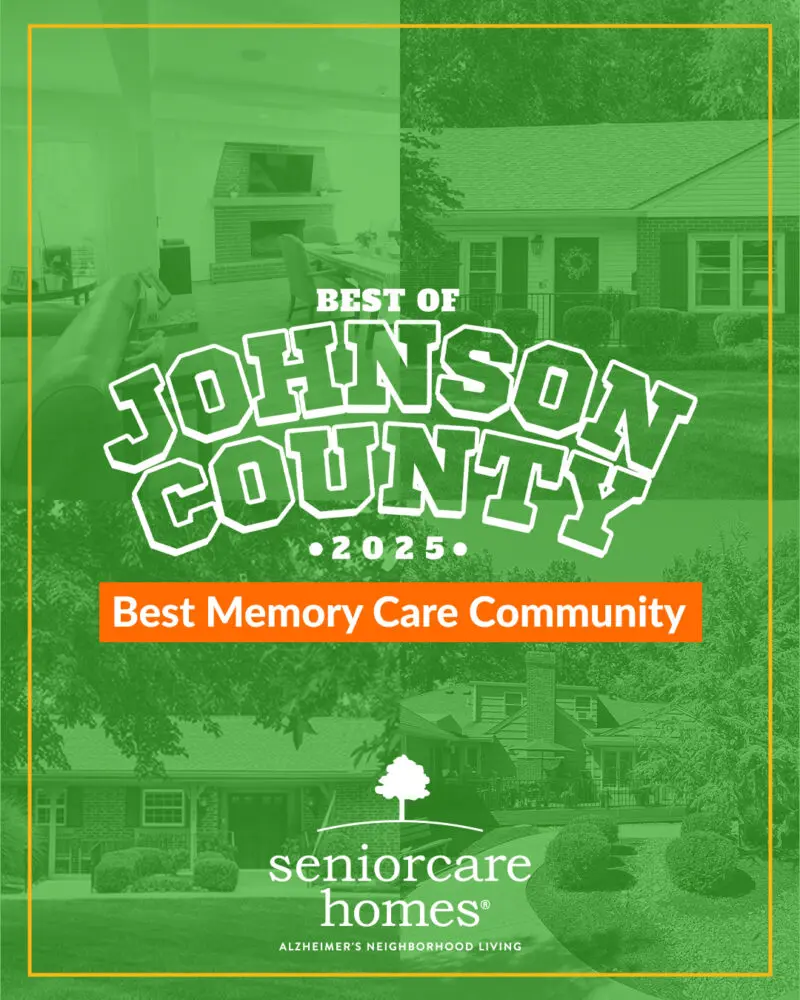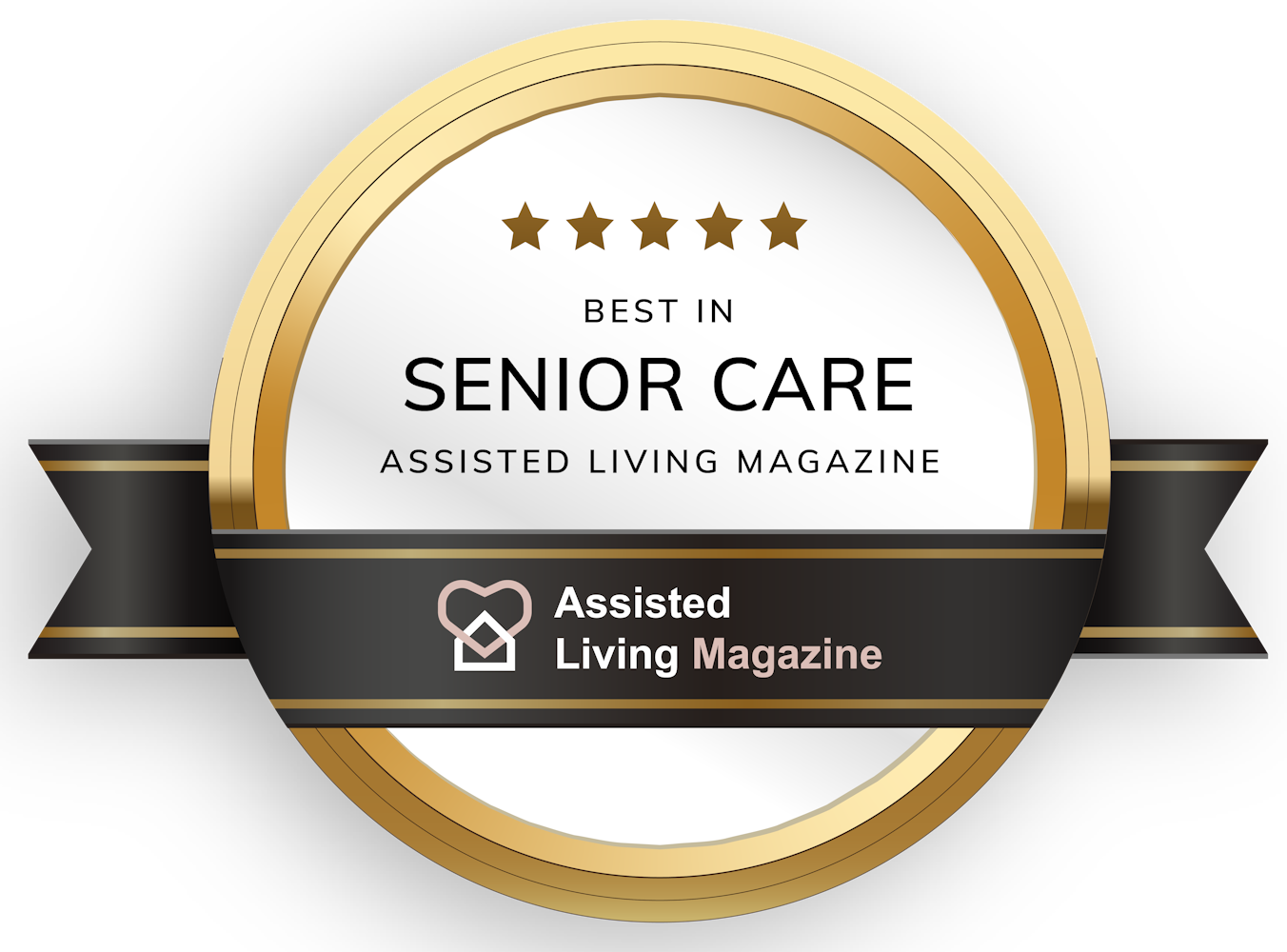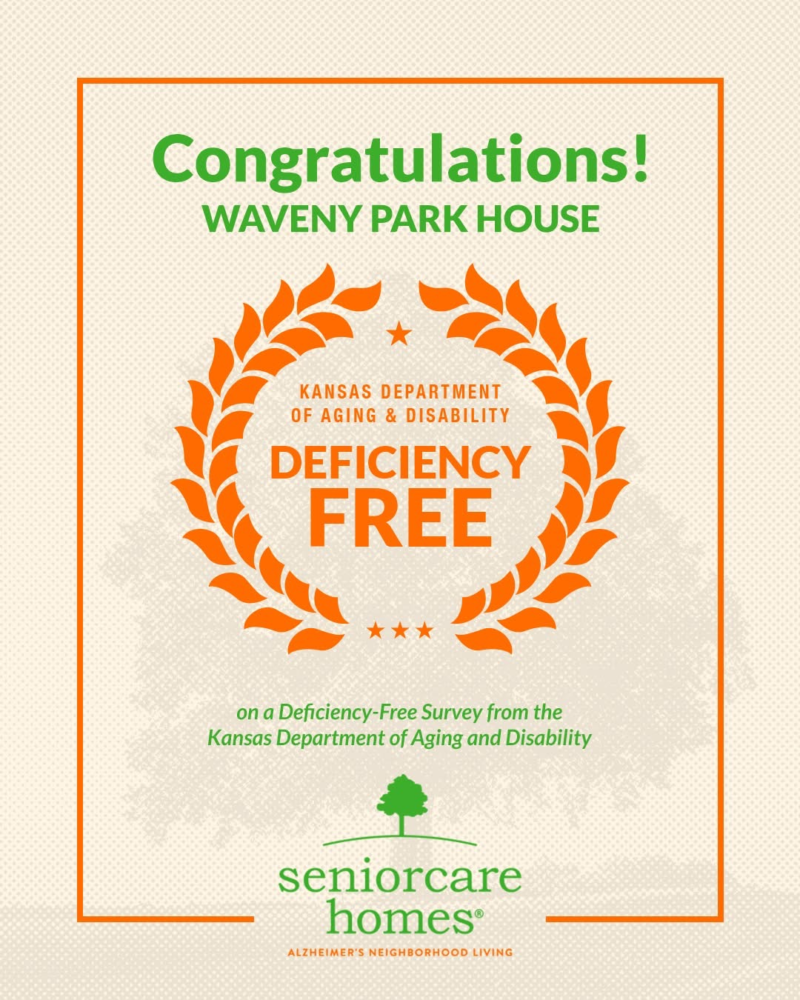Parkinson’s Care in Overland Park, Kansas
Life at SeniorCare Homes
The staff at SeniorCare Homes is specially trained to assist residents suffering from Parkinson’s disease, which is a progressive movement disorder marked by tremors, rigidity, slow movements (Bradykinesia) and posture instability. Parkinson’s disease occurs when cells in one of the movement-control centers of the brain begins to die for unknown reasons.
Dementia and Alzheimer’s diseases can often affect the lives of those living with Parkinson’s. At SeniorCare Homes, we understand the unique needs of both disease processes. Each of our residences is limited to 5 to 8 people. This enables us to provide the most individualized care, focusing on activities that stimulate the brain and enhance lives by making each day meaningful, fulfilling, and endowed with familiarity and a deep sense of belonging.
Key features of SeniorCare Homes for Parkinson’s Care
- Real wood floors to make getting around easy (smooth transitions from carpet to hardwood, even in bedrooms)
- Licensed caregiver in residence 24/7
- Nurses in homes and available on-call 24/7
- Private bedrooms & bathrooms available
- Bathrooms equipped with safety grab bars and easy-access showers
- Detailed knowledge of each patient’s needs and routine
- Understanding that independence for as long as possible instills dignity
- Dedicated vehicles for outings into Johnson County
- iPad for memory loss activities and games
- Real home setting with snacks for visitors
- Dog visits from Pets for Life
Disease Progression
Life can become difficult in the final stages of Parkinson’s disease. SeniorCare Homes is equipped to deal with all stages of Parkinson’s while ensuring that individuals continue to feel a sense of belonging and purpose both physically and mentally.
End of Life Care
There’s nothing more difficult for family members than to move their loved one from a warm, familiar environment where they’re surrounded by recognizable caregivers to a cold, frightening hospital setting when the end of life is near.
Our Care Specialists are trained to deal with late stage disease and end of life care. We’re incredibly proud of how our caregivers work to create a calm, loving and almost magical setting for everyone when the time comes to say goodbye. We use hospice support and have doctors on-call 24/7 to provide a continuum of care. SeniorCare Homes gives you peace of mind knowing your loved one may never have to leave home in their final days.
Understanding Parkinson’s
Parkinson’s disease is a chronic and progressive movement disorder where symptoms continue and worsen over time. Symptoms vary from person to person but primary motor signs of Parkinson’s disease include:
- Tremors of the hands, arms, legs, jaw, and face
- Bradykinesia or slowness of movement
- Rigidity or stiffness of the limbs and trunk
- Postural instability or impaired balance and coordination
Parkinson’s disease occurs in the following five stages of increased severity:
- Parkinson’s affects only one side of the body
Symptoms are mild; some patients will not even detect symptoms at this stage. Typical initial motor symptoms are tremors and shaking limbs. - Parkinson’s affects both sides of the body
The person may begin having trouble walking and maintaining balance while standing. There may be difficulty in performing simple tasks such as cleaning, bathing or dressing, but most patients still lead normal lives. - Symptoms are more pronounced, but the patient can still function without assistance
The person will experience obvious trouble walking, standing, and moving physically. Symptoms can interfere with daily life because of falling risks and lack of dexterity. - Advanced stage of disability
In the fourth stage, the disease is advanced and debilitating. Motor symptoms such as rigidity and Bradykinesia are visible and difficult to overcome. The person likely needs living assistance. - Wheelchair-bound or bedridden
The final stage of Parkinson’s is severe. The person will be unable to perform physical movements without assistance.










